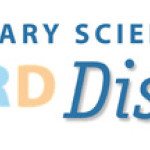- Industry: Astronomy
- Number of terms: 6727
- Number of blossaries: 0
- Company Profile:
Planetary Science Research Discoveries (PSRD) is an educational site sharing the latest research by NASA-sponsored scientists on meteorites, asteroids, planets, moons, and other materials in our Solar System. The website is supported by the Cosmochemistry Program of NASA's Science Mission ...
Pertaining to carbon-containing compounds. Organic compounds can be formed by both biological and non-biological processes.
Industry:Astronomy
A star in the process of formation which has not yet become hot enough in the core to initiate the process of nuclear fusion (10<sup>7</sup> K) to halt its gravitational collapse.
Industry:Astronomy
An appearance; in astronomy, the period of observation of a returning periodic comet.
Industry:Astronomy
An element with atomic number 16; symbol: S. Sulfur is common on the surface of Jupiter's moon Io.
Industry:Astronomy
The Sun and all the objects (planets, moons, asteroids, and comets) that orbit the Sun.
Industry:Astronomy
A temperature scale with the freezing point of water assigned the value 32 °F and the boiling point of water 212 °F at standard pressure. To convert Fahrenheit to Celsius: Deduct 32, then multiply by 5, then divide by 9.
Industry:Astronomy
The configuration (shapes, positions, arrangements) and relief (elevations, slopes) of the land surface.
Industry:Astronomy
The percentage of the total volume of rock or soil that consists of open spaces. (The space between particles is called pore space. )
Industry:Astronomy
The measure of the degree of elongation of an ellipse. For example, a circle has an eccentricy of 0, and a parabola (an open figure) an eccentricity of 1. The deviation of an orbit from a perfect circle.
Industry:Astronomy
